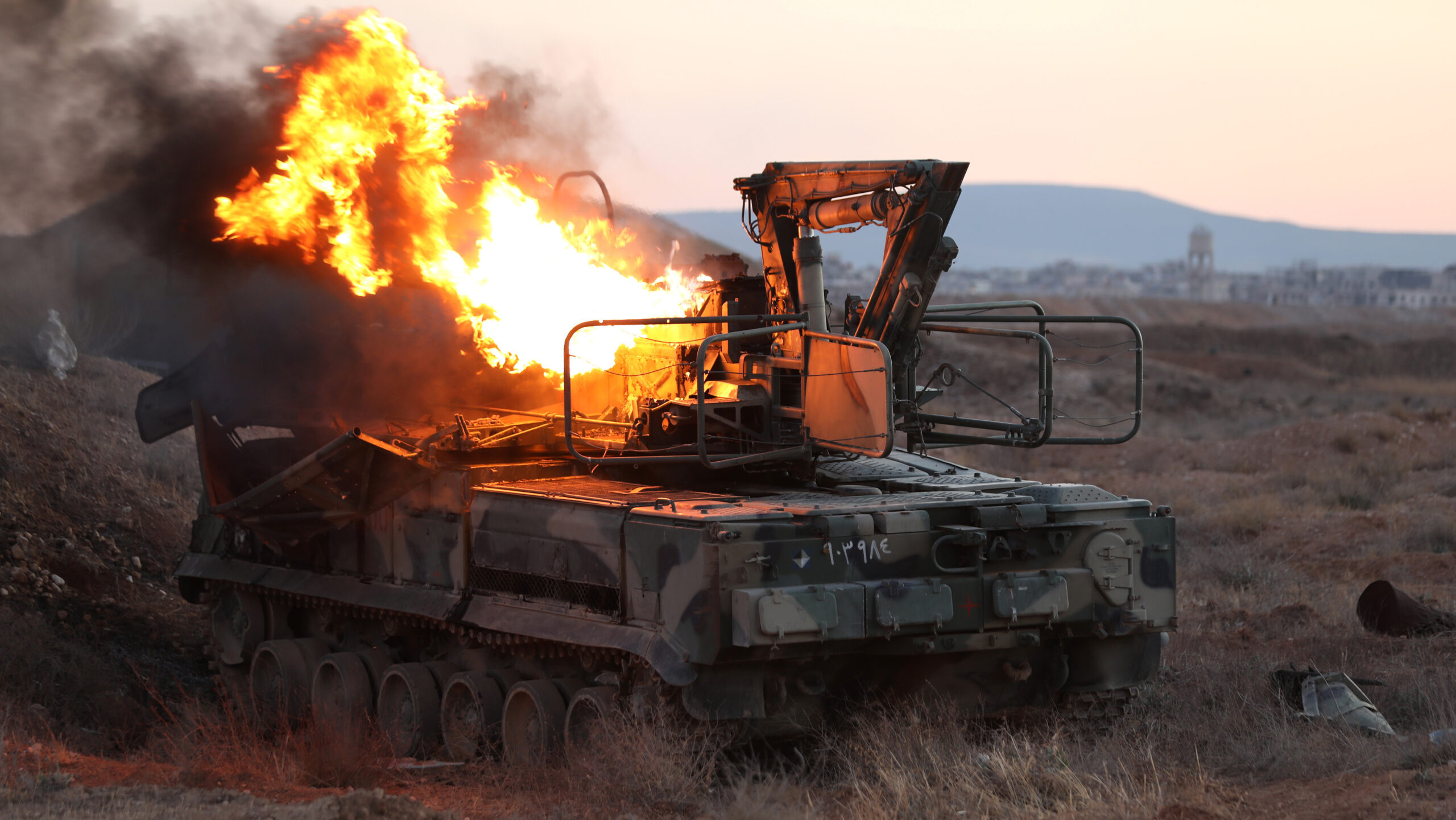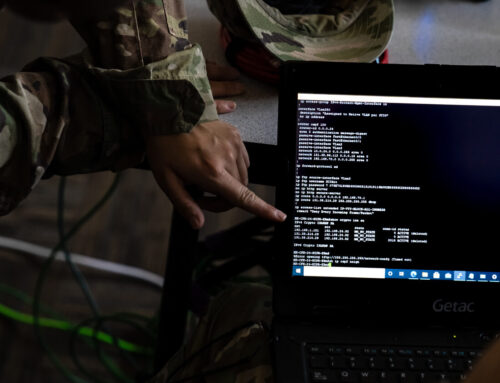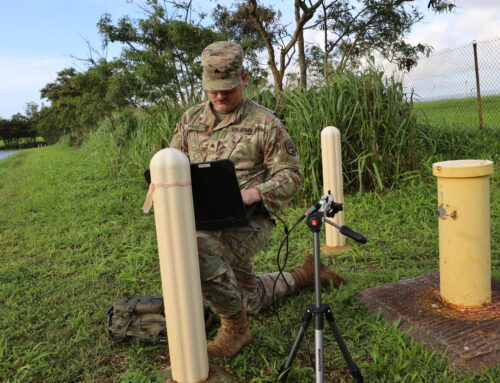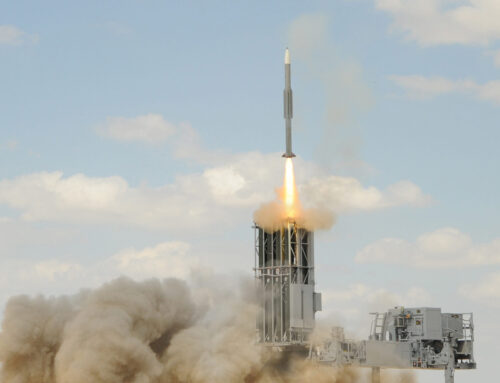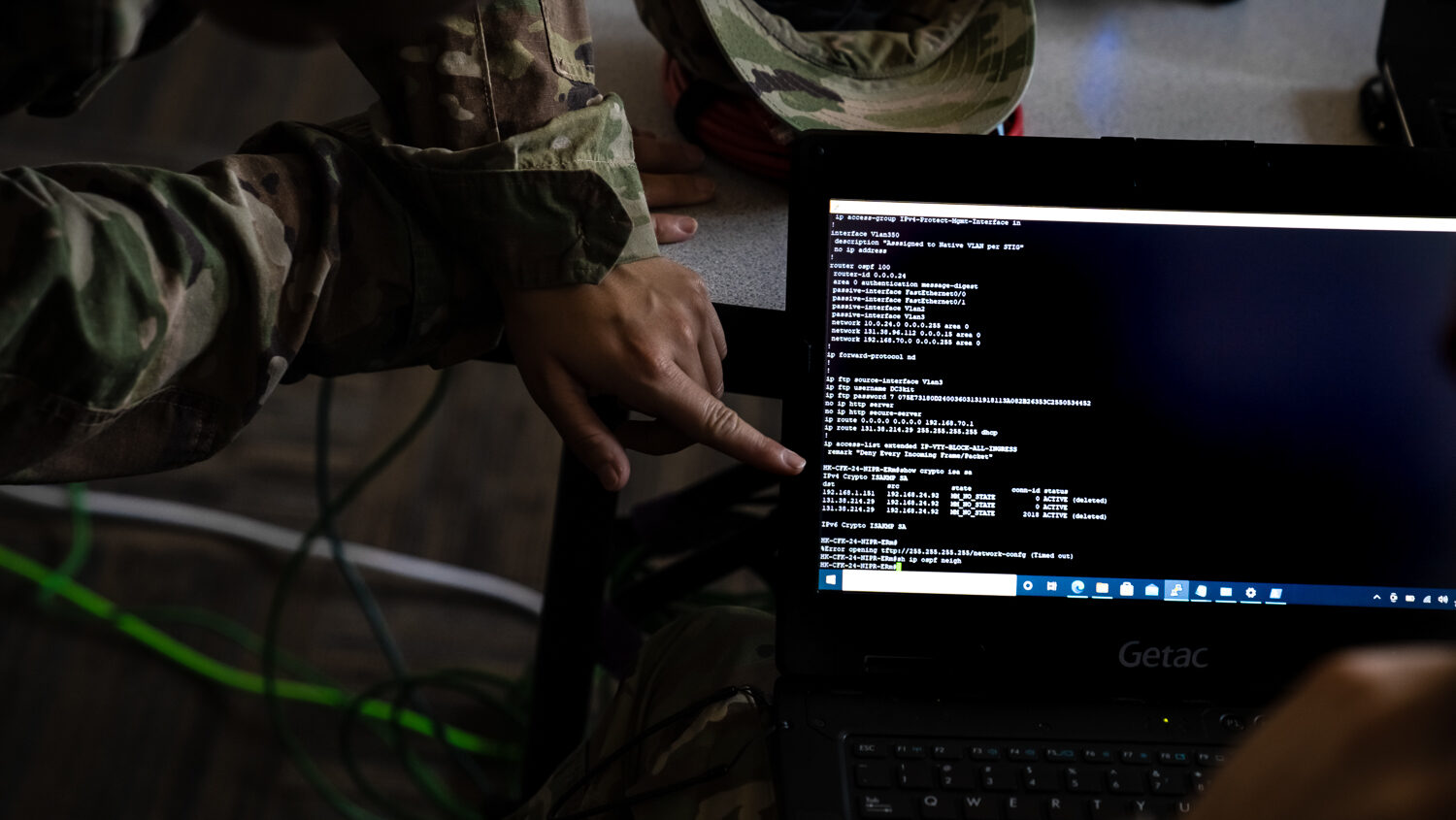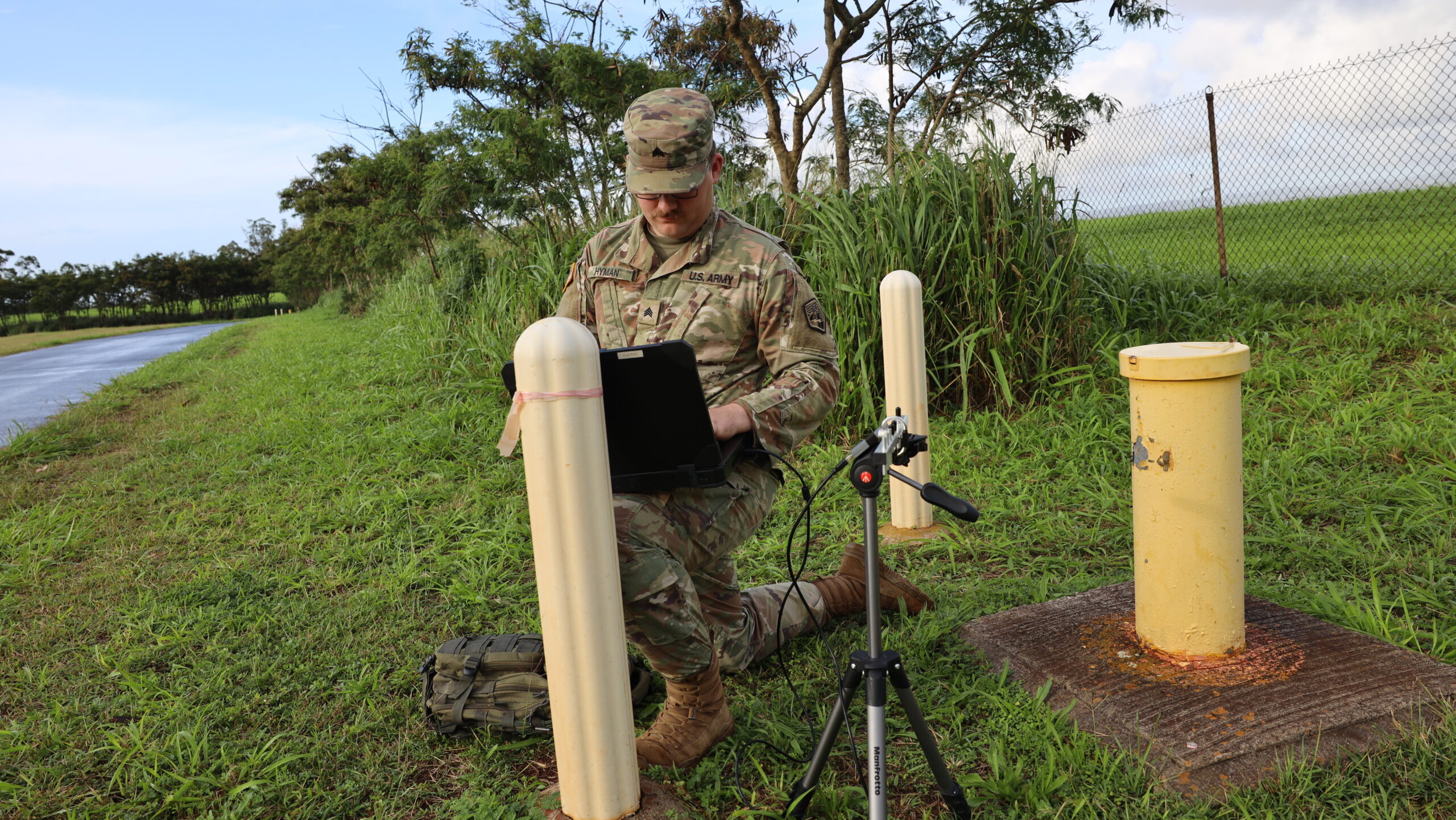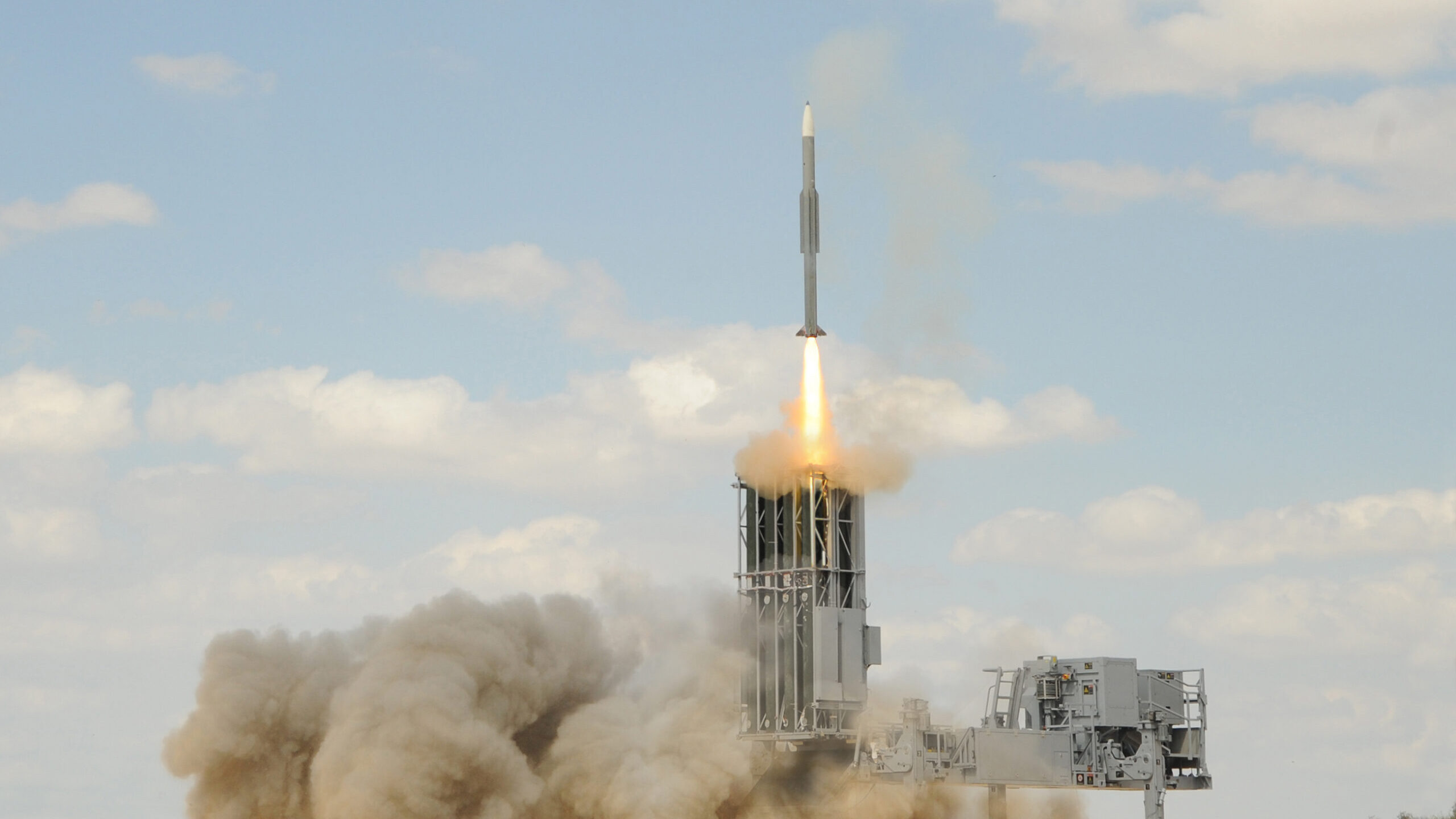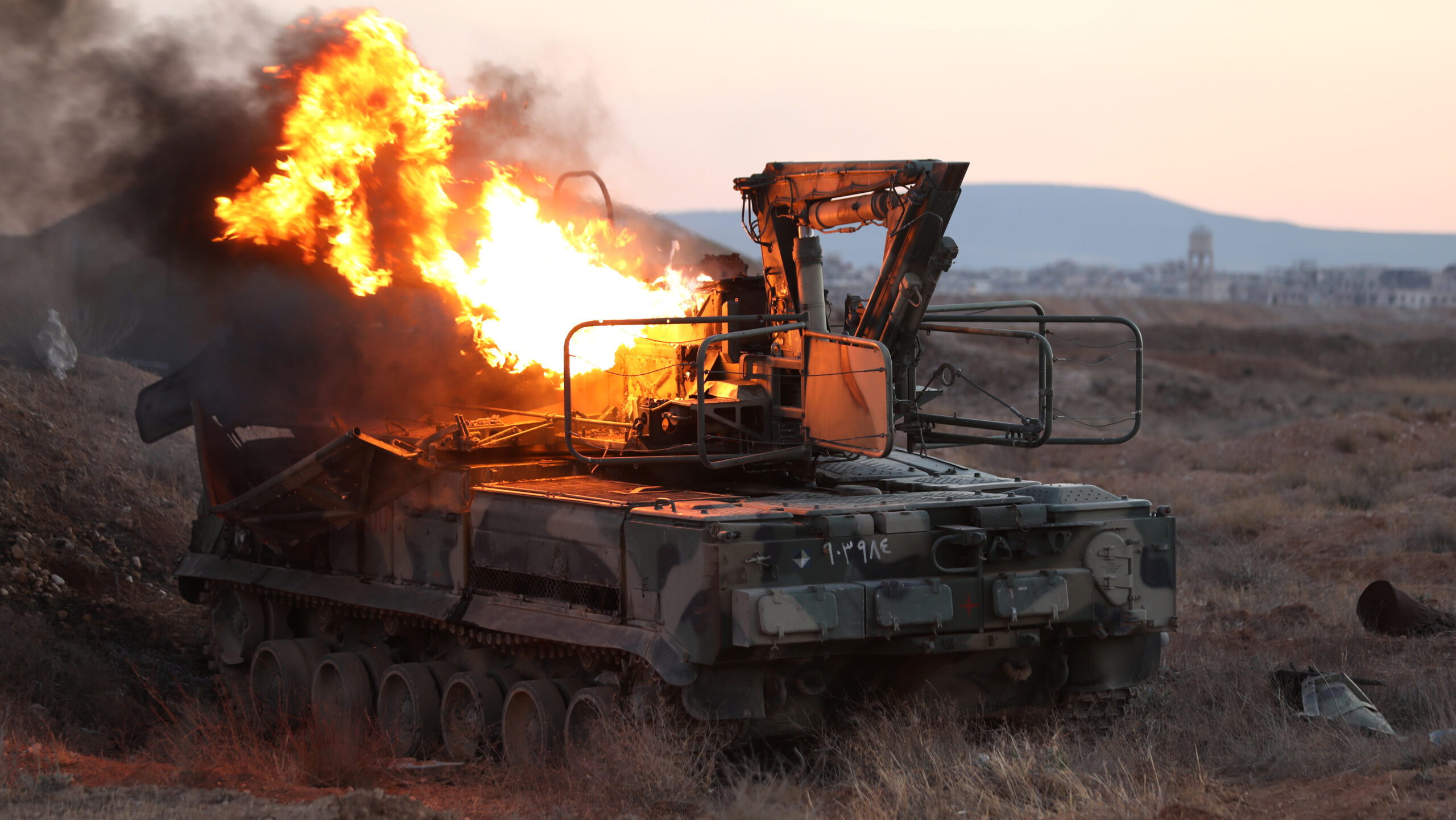
Air defense radar burns at Mezzeh Air Base on December 8, 2024 in Damascus, Syria. (Ali Haj Suleiman/Getty Images)
JERUSALEM — The Israel Defense Forces have carried out more than 350 strikes in Syria since Dec. 7, as Israel seeks to dismantle the Assad regime’s arsenal before it can be taken over by the rebel forces that shockingly took control of the country over the weekend.
Dubbed Operation Arrow of Bashan, the Israeli strikes included attacks from the land, sea and air. According to an IDF statement, the strikes have destroyed “Scud missiles, cruise missiles, surface-to-sea, surface-to-air and surface-to-surface missiles, UAVs, fighter jets, attack helicopters, radars, tanks, hangars, and more.”
“I approved the Air Force bombing of strategic military capabilities left by the Syrian military so that they will not fall into the hands of the jihadists,” Israeli Prime Minister Benjamin Netanyahu said on Dec 10. “We have no intention of interfering in Syria’s internal affairs; however, we do intend to do what is necessary for our security.”
Netanyahu compared the large-scale precision airstrikes to the British raid on French naval ships in the wake of France’s fall to the Nazis in 1940s. England wanted to prevent the Nazis using French naval ships at the time to expand the relatively small German navy.
The IDF said the Israeli Navy carried out a raid on two Syrian naval facilities at the Al-Bayda and Latakia ports, targeting fifteen naval vessels. In addition “dozens of sea-to-sea missiles with ranges of 80–190 kilometers were destroyed. Each missile carried significant explosive payloads, posing threats to civilian and military maritime vessels in the area,” the IDF said.
From the air, the strikes targeted anti-aircraft batteries and Syrian Air Force airfields, as well as “dozens of weapons production sites in Damascus, Homs, Tartus, Latakia, and Palmyra.” Israeli ground forces also struck 130 places in Syria, including “weapons depots, military structures, launchers, and firing positions.”
It’s not hard to understand why Israel would take this moment of chaos, when the Assad regime has collapsed but no one has taken control of the military, to try and degrade threats from its neighbor.
אריאל כהנא: שרידי ספינות טילים של חיל הים הסורי בנמל טרטוס. תמונות שמהדהדות את השמדת חילות האוויר של מדינות ערב במלחמת ששת הימים pic.twitter.com/J1O0ATz3Le
— זירת החדשות (@ZiratNews) December 10, 2024
The Alma Research and Education Center, which focuses on threats to northern Israel noted that in the wake of the collapse of the Assad regime “anything from basic military equipment to advanced conventional weapons, strategic capabilities, and even unconventional weapons, such as chemical weapons,” could be taken by various groups, something the group calls “a clear and immediate danger.”
Ksenia Svetlova, a former member of Knesset and Executive Director of the NGO Ropes, also noted this sense of concern in Israel in a conversation with Breaking Defense.
“When Israel pounds Syrian military objectives, this is because of the fear it might fall into the wrong hands — and there are many wrong hands in Syria as we know,” said Svetlova. “There are no guarantees that the new rulers of Syria will be able to maintain control or be able to prevent from military factions that with them of doing something that can jeopardize Israel’s interests.”
Yaakov Katz, who wrote a book called Shadow Strike on the Israeli strike on Syria’s nuclear program in 2007 and is a fellow at The Jewish People Policy Institute, told Breaking Defense that “Syria has amassed significant strategic weapons over the last few decades – ballistic missiles, chemical weapons and aircraft.” He agreed with Svetlova and the Alma center that there should be real concern that these weapons might fall into the wrong hands.
The IDF “is doing it to keep Israel safe, but this is a benefit for the entire world,” Katz said.
The Syrian regime historically possessed a large arsenal of both conventional and, although its chemical arsenal was officially destroyed year ago, unconventional weapons. Many of the conventional weapons are of Russian origin, including Mig-23 jets and attack helicopter, plus air defenses systems. Syria’s main military arm was its ground forces, although these were badly damaged in more than a decade of intense fighting during the Syrian civil war that began in 2011.
Photos and footage posted online showed a number of the sites allegedly struck, including military airfields. Because the strikes were carried out at night, it was not always possible to confirm which strikes were Israeli strikes and which may have been other incidents.
Richard Kemp, a former commander of British forces in Afghanistan who led the international terrorism team at Britain’s Joint Intelligence Committee, described the strikes in a post online as a “strategic masterstroke by Israel. In perhaps the most intensive bombing campaign in its history, Israel has destroyed the Syrian air force, air defences, navy and army assets plus defence industries and C2I.”
Svetlova noted that in the wake of the strikes it was interesting to see a lack of statement from the new rulers in Damascus about the attacks. The strongest faction in Damascus today is Hayat Tahrir al Sham and its leader Mohammed el Jolani. Mohammed al-Bashir, an HTS loyalist, was appointed the new Prime Minister of Syria on Dec. 10.
Ksenia said she had seen criticism online among Syrian activists about the silence in Damascus. “Some label it and frame it as support for Israel, or even cooperation or collaboration with Israel, which is of course not true. Israel was surprised by this development just like everybody else.”
She noted the strongest reactions were condemnation by Iran and Hezbollah. Turkey, Qatar and other countries have also condemned the Israeli strikes.


